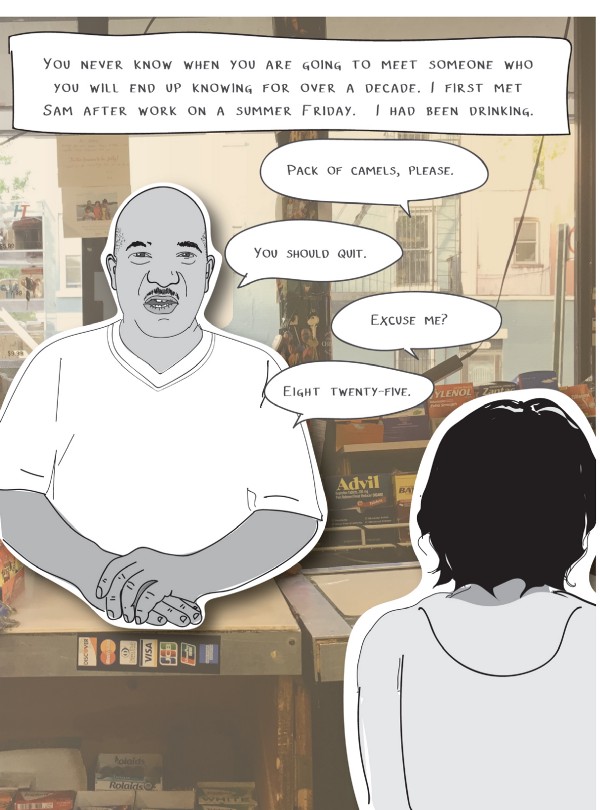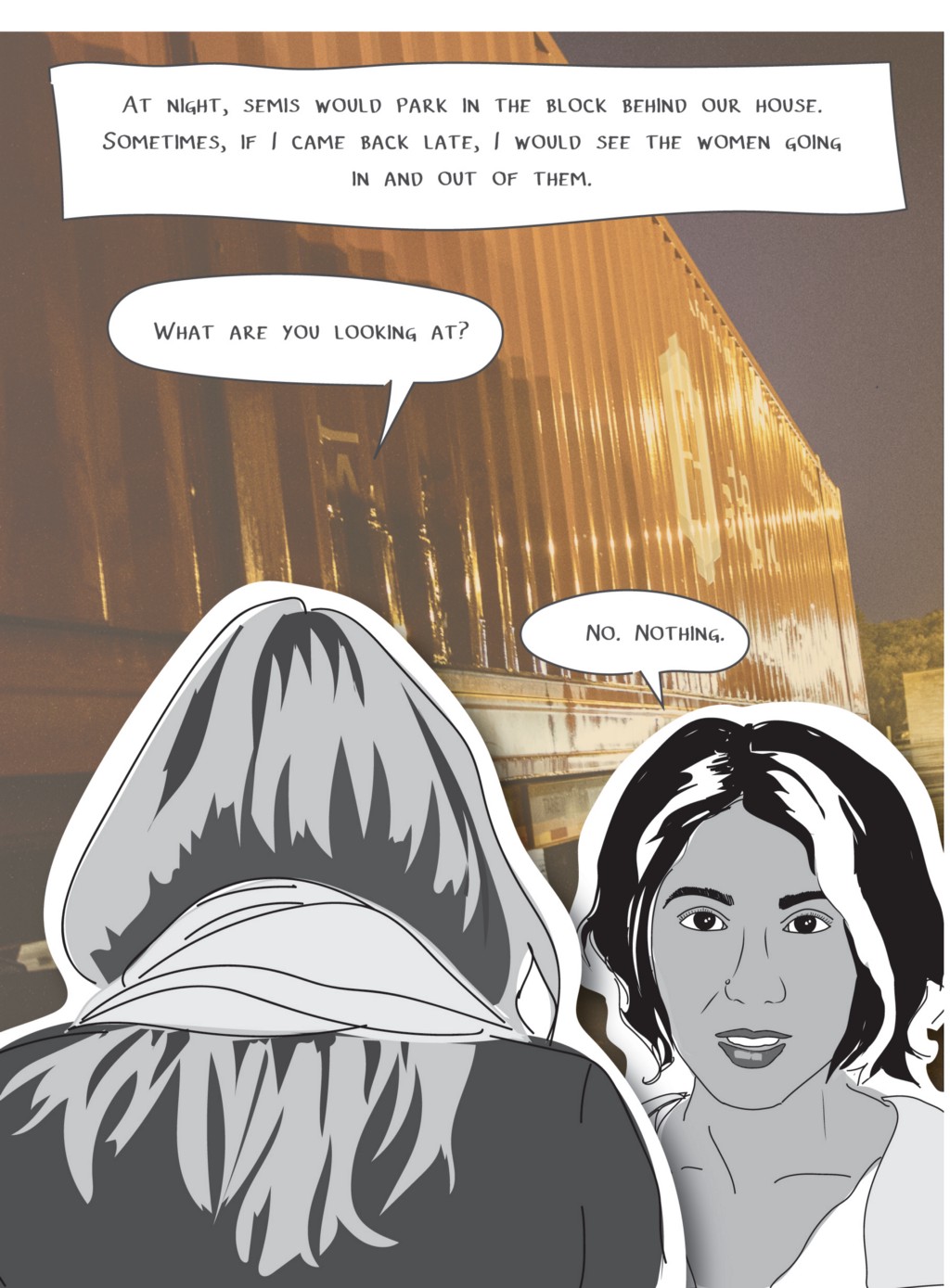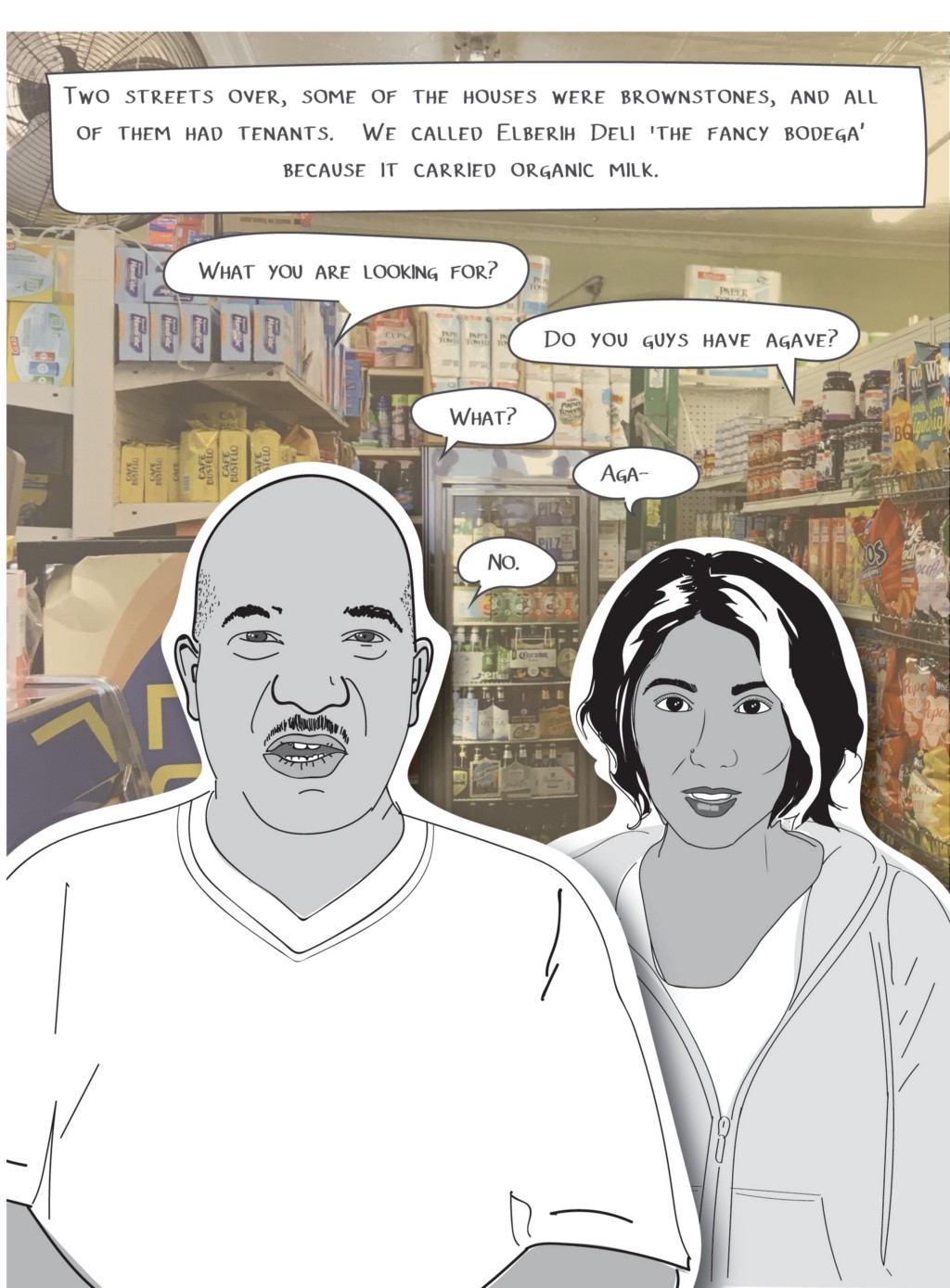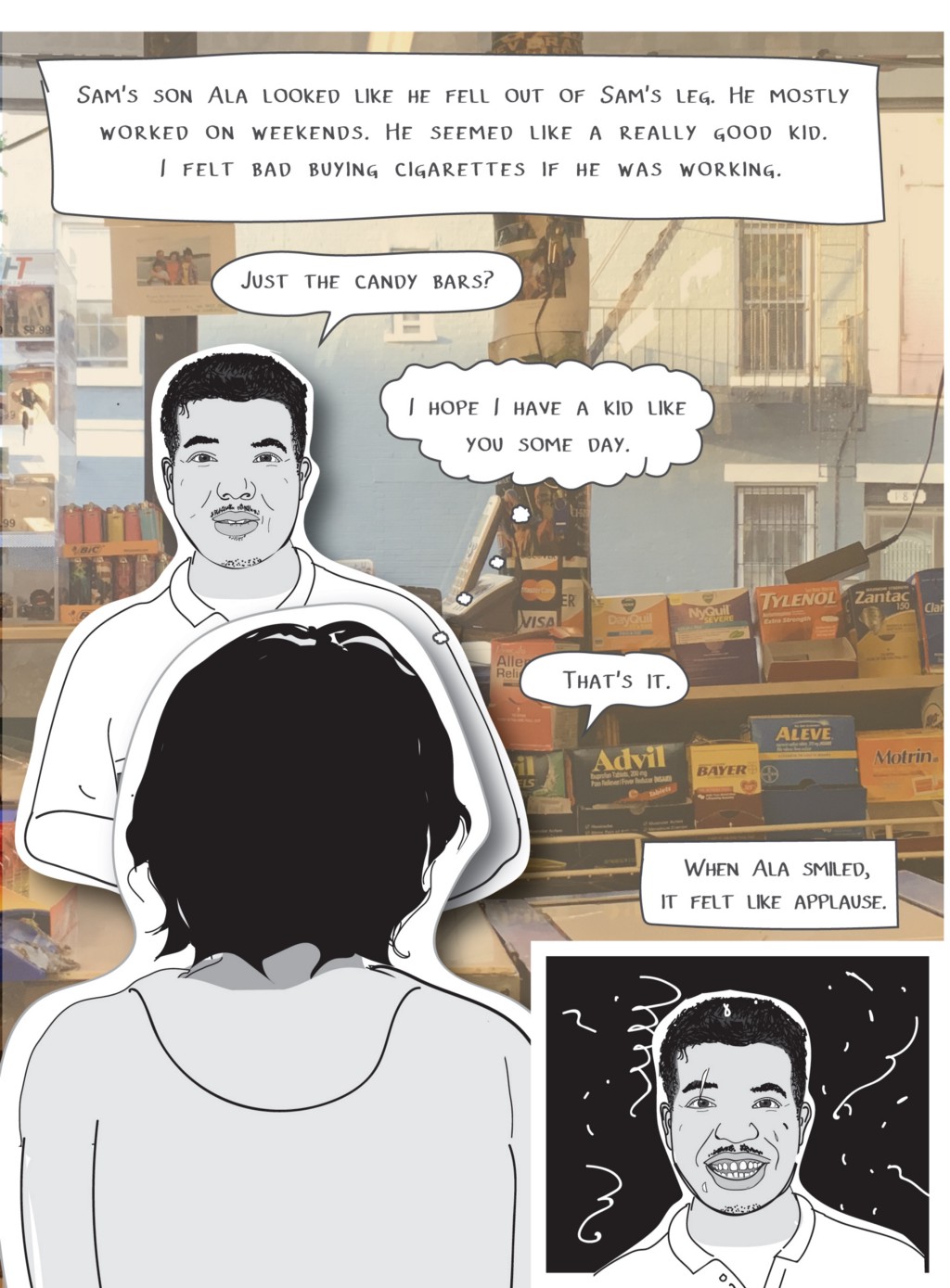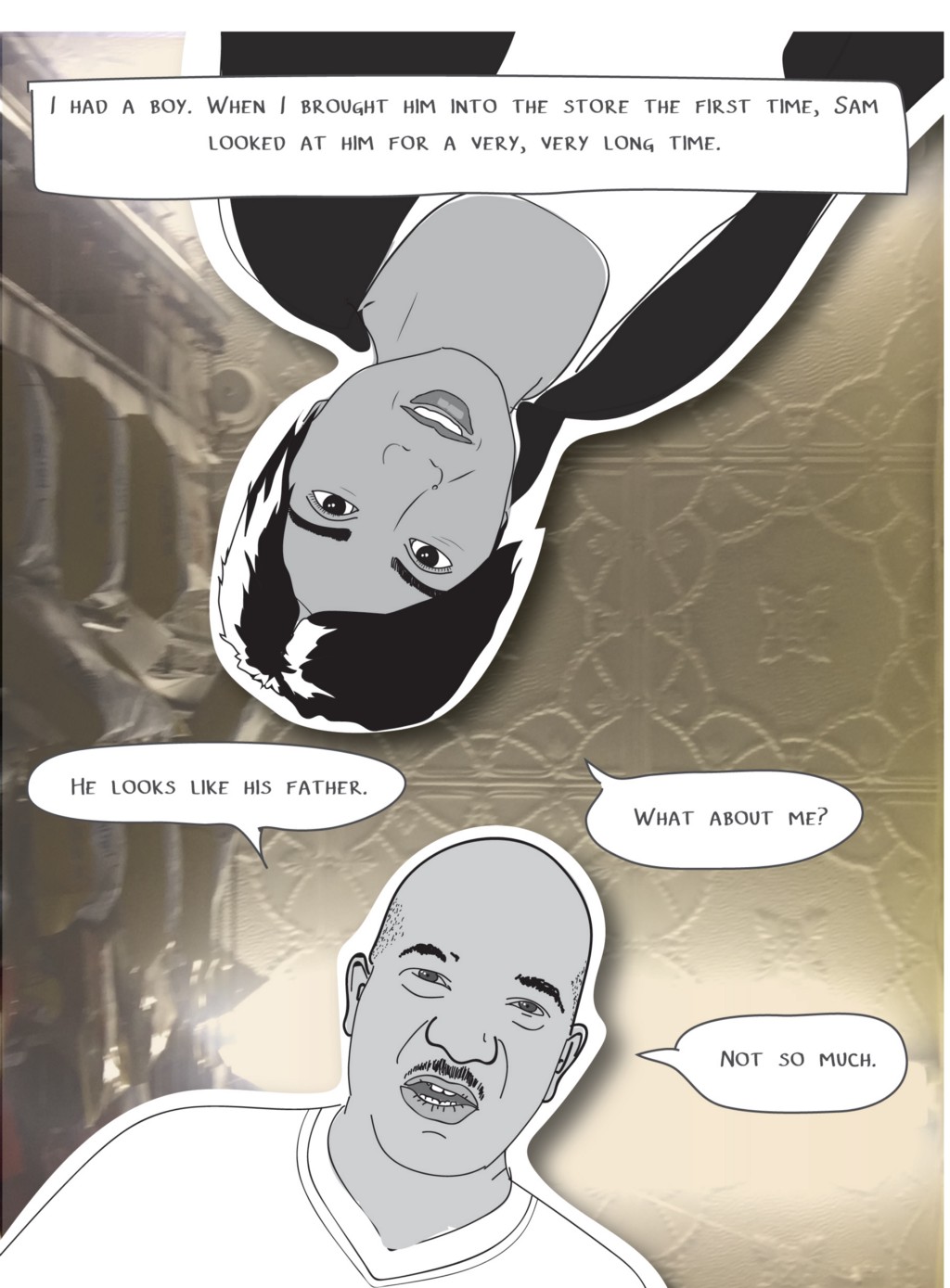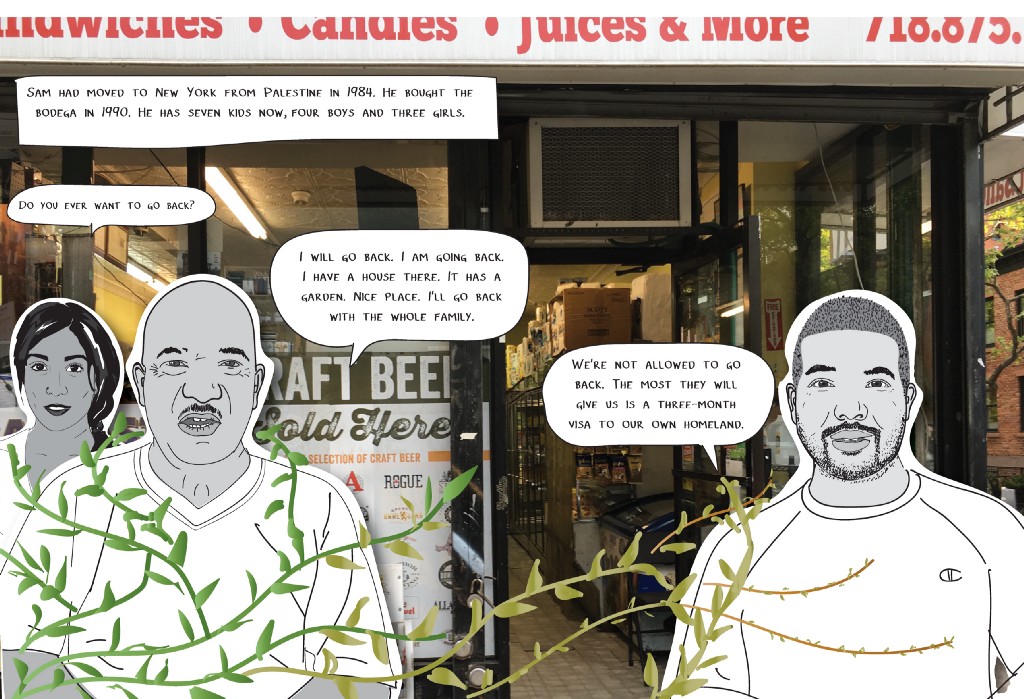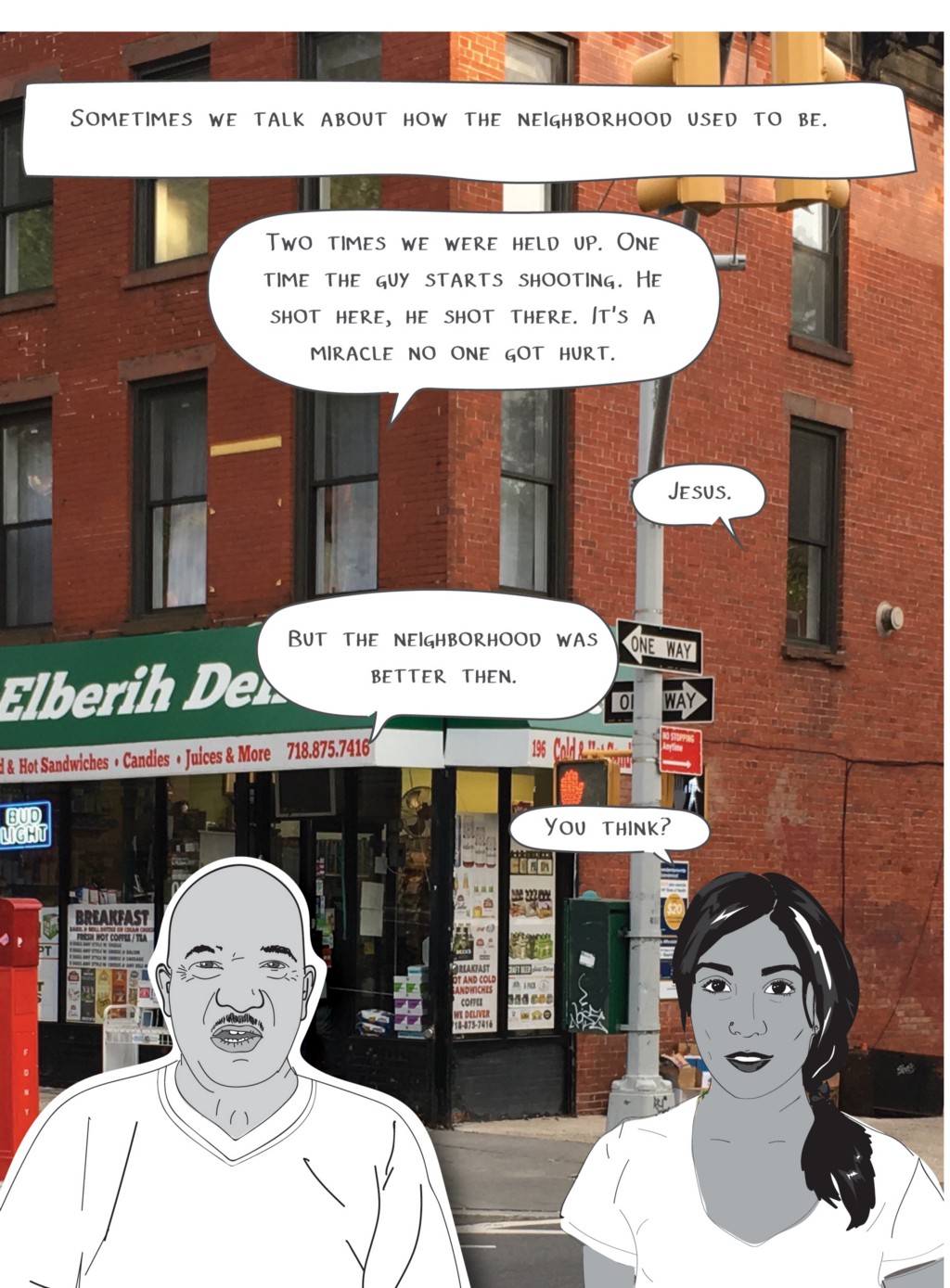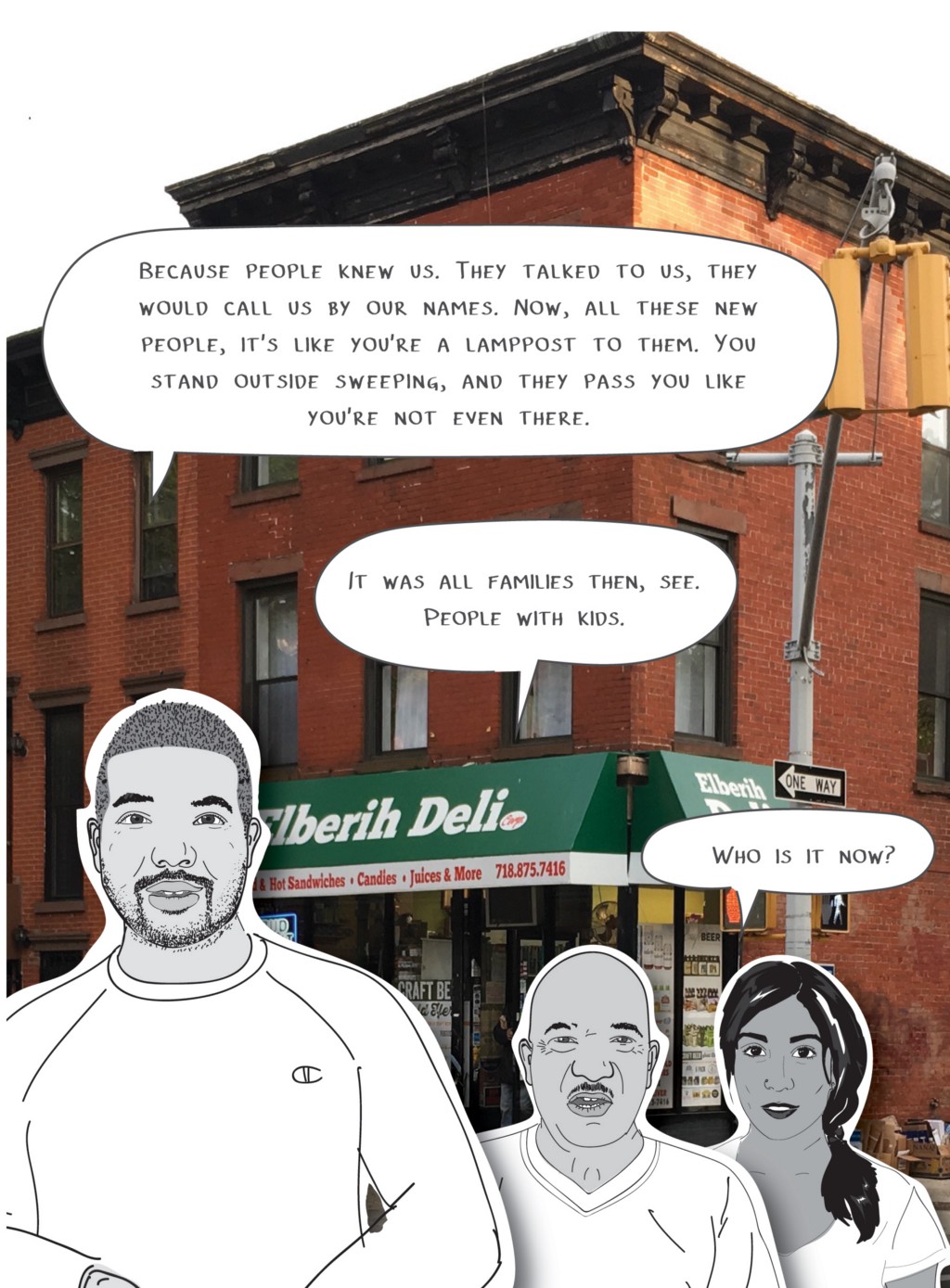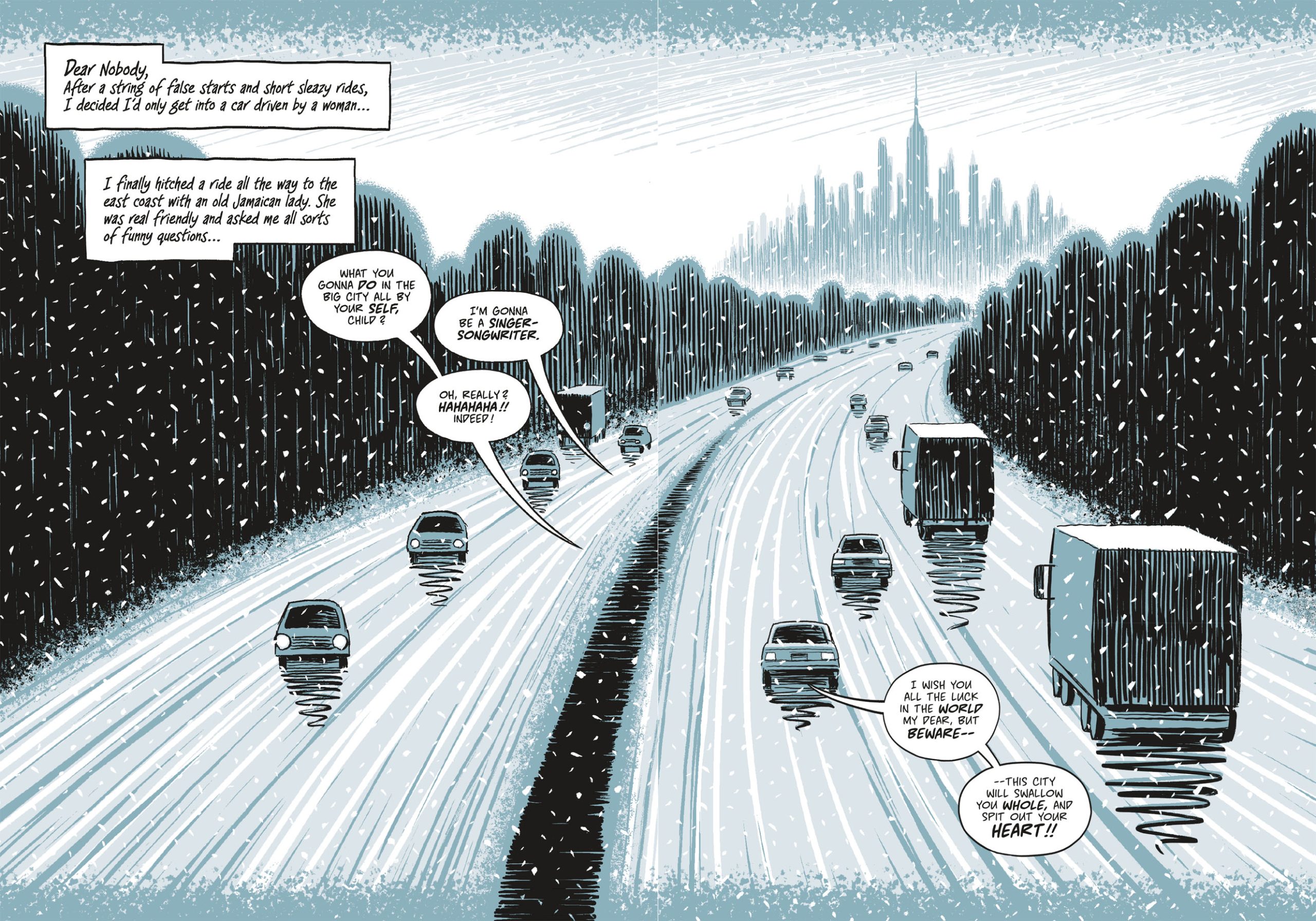essays
From His Corner, A Bodega Owner Watches Brooklyn Change
Mira Jacob profiles her Boerum Hill bodega in this illustrated essay

About the Author
Mira Jacob is the author of the critically acclaimed novel, The Sleepwalker’s Guide to Dancing, which was a Barnes & Noble Discover New Writers pick, shortlisted for India’s Tata First Literature Award, longlisted for the Brooklyn Literary Eagles Prize, and honored by the Asian Pacific American Librarians Association. She is currently working on her graphic memoir, Good Talk (Dial Press, 2018). You can find more of her drawn conversations over here: instagram.com/goodtalkthanks.
— The Bodega Project is supported by a grant from the New York City Department of Cultural Affairs.





